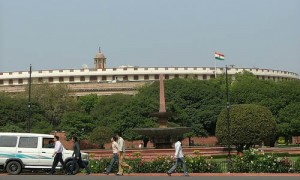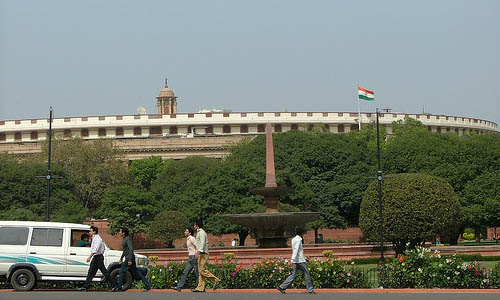 Track2Realty: The Lok Sabha on Thursday night, Aug 29, okayed a new farmer-friendly land acquisition Bill that promises to address landowners’ concerns as regards relief and rehabilitation. A last-minute division of votes forced by the Trinamool Congress saw 216 members voting in its favour and 19 against it.
Track2Realty: The Lok Sabha on Thursday night, Aug 29, okayed a new farmer-friendly land acquisition Bill that promises to address landowners’ concerns as regards relief and rehabilitation. A last-minute division of votes forced by the Trinamool Congress saw 216 members voting in its favour and 19 against it.
The Bill bans forcible acquisition of land. The much “misused” and decried “urgency clause” in the existing Act, used by district collectors to acquire land, will now apply only in case of national security and defence-related projects. That, too, after paying 75 per cent additional compensation.
In other cases of land acquisition, farmers will get better payments. The Bill makes it mandatory to seek farmers’ consent before acquisition of land. Landowners will also get spin-off benefits by way of small portions of developed land for commercial use adjoining the upcoming projects.
The “Right to Fair Compensation and Transparency in Land Acquisition, Resettlement and Rehabilitation Bill, 2013” replaces the British-era Land Acquisition Act of 1894. The Bill will now go to the Rajya Sabha for ratification before the President accords his ascent to it.
The Bill incorporates 28 amendments over the original draft of 2011. A standing committee of Parliament and a group of ministers had suggested 13 amendments each while two amendments came from Leader of the Opposition in the Lok Sabha, Sushma Swaraj.
“States are free to enhance compensation over and above the ceiling laid down by Parliament,” Union Rural Development Minister Jairam Ramesh said as he piloted the Bill.
“The states will have flexibility, we cannot have uniform law for the entire country,” he said. Citing the example of Punjab, Haryana and Kerala which protested against a clause barring acquisition of land yielding two crops annually, Ramesh said, “The states have the freedom to decide (on such issues).” Land can be taken on lease, but it has been left to the states to decide the terms and conditions for such a lease.
The Bill defines the term “public purpose” for land acquisition. This will include agro-based industry and similar activities. The Bill says when land is to be acquired by the state for a private entity or a PPP project, it will have to conduct social and environment-impact assessments of the area besides identifying the families that would be affected if the land was acquired.
The private entity seeking land must then obtain the consent of 80 per cent of the affected families before it gets the government to acquire land for it. In the case of PPPs, the entity will have to secure the consent of 70 per cent of the affected families.
Payment of compensation and fulfilling relief and rehabilitation requirements as mentioned in the Bill will be the third condition for getting possession of the land acquired through state intervention.
The Bill proposes payment of compensation which is up to four times the market value in rural areas and twice the market value in urban areas. The Bill also provides for compensation to those dependent on the land for their livelihood. The definition of “affected family” includes farm labourers, tenants and workers in the area for three years prior to acquisition.
A Land Acquisition and Rehabilitation and Resettlement Authority will be established for settling disputes relating to the process of acquisition, compensation, and relief and rehabilitation.
The Bill will apply retrospectively. It means, in case of the previously land for which no compensation has been paid so far, the provisions of the new Bill will apply. The Bill also provides for a consultation process with gram sabhas





